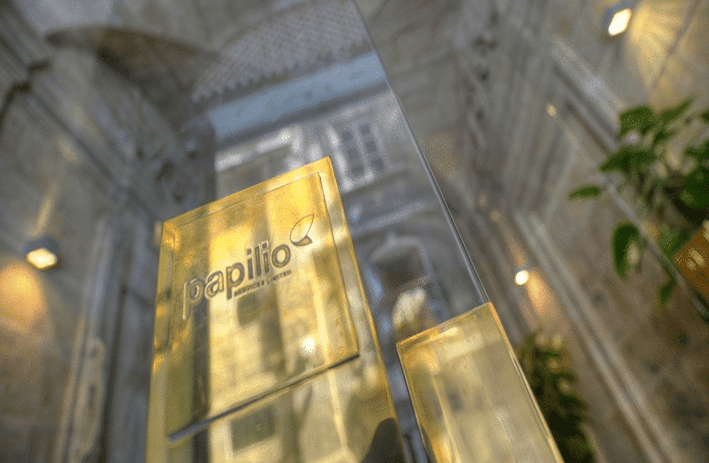Trademarks, a world of opportunities
In the global business world, trademarks as a type of intellectual property, are crucial for distinguishing products or services of one source from those of another. Trademarks can take the form of phrases, words, symbols, and more, and they must be used commercially for their registration to be accepted. A good trademark should stand out from other brands in the same market category, with unique characteristics that make it recognizable but not descriptive or suggestive in nature.
The Purpose of the Trademark
Obtaining a trademark is important for businesses as it serves to distinguish their products and services from competitors, whilst also protecting the investments made into building and maintaining a reputable brand. Trademark law works to prevent unfair competition and prohibits the use of logos or symbols that could be mistaken for those of established businesses. Certain limitations exist for trademark registration, including lack of distinctiveness and the use of signs designating the kind, quality, and value of goods or services offered by businesses.
How long do trademarks last?
A trademark needs to be renewed every ten years after it is registered. Thus, provided the renewal payments are regularly paid, trademarks may be able to endure indefinitely. Trademarks, however, may be canceled or revoked if they haven’t been continually used for the previous five years. This emphasizes the significance of keeping documentation to demonstrate legitimate usage, such as invoices, sales records, and samples of products and packaging showing the trademark.
International Trademark Registration
An International Registration (IR) is the designation for a registration secured under the Madrid System, providing a means to simultaneously seek protection for a trademark in a large number of jurisdictions. The system is governed by two separate international treaties, the Madrid Agreement and the Madrid Protocol, and is administered by the International Bureau of the World Intellectual Property Organization (WIPO). Trademark rights are considered distinct in each country or jurisdiction, and while many jurisdictions have agreed upon common procedures for filing trademark applications, the existence and enforceability of these rights are unique to each jurisdiction and not interdependent.
Trademark Registration in Malta: a safe gateway to the EU market
Securing a trademark in Malta, as an EU Member State, not only helps consumers recognize products and quality but also safeguards intellectual property and inventions when registering a company in Malta. Professional assistance is available for filing the initial registration of intellectual property and creating tax-efficient royalty structures.
Businesses can opt to obtain a national/domestic trademark or an EU trademark in Malta, which confers the same rights on a larger scale across the member states. A successful application at the EUIPO grants legal protection throughout all of Europe.
The EUTM system
With the submission of a single application, the EUTM system provides trademark owners with a uniform system of protection across the EU. This application, if accepted, leads to an EUTM registration that is accepted throughout the EU. The protection of an extended EUTM in a new member state, however, dates from the member state’s admission date to the EU rather than the filing date of the EUTM. This is because the coverage of already-existing EUTMs automatically expands as new member states are added to the EU, without any action or payment required of the trademark owner. The European Union Intellectual Property Office, located in Alicante, Spain (previously the Office for Harmonization in the Internal Market), is the registering body.
International Trademark Regulations
Similar to other forms of intellectual property, trademark rights are regarded as unique in their entirety in each nation or jurisdiction in which they are acquired. Every jurisdiction has the right to acknowledge and defend trademark rights in a way that advances its objectives. Even though a collection of trademark rights from several jurisdictions are referred to as “international trademark rights,” each jurisdiction determines whether or not these rights exist, and they are typically not linked. Many jurisdictions have established standard operating processes or protocols for filing trademark applications, despite disparities in the recognition and enforcement of trademark rights.
If you are looking to protect your intellectual property and inventions on an international level, consider consulting with an experienced team to safeguard your ideas and discuss your unique needs. In light of this, it’s important to note that intellectual property concerns must be taken into account before entering a particular target market when extending operations overseas. At Papilio Services, we prioritize providing our clients with advance advice and streamlining their investment decisions. Throughout our experience with international clients and different jurisdictions, we have encountered different scenarios in play. Let’s examine in detail a few examples from other countries, such as South Africa, an observer of the African Regional Intellectual Property Organization (ARIPO), and the African Regional Intellectual Property Organization (OAPI), and explore their array of intricate intellectual property (IP) regulations.
South Africa: Outsourcing Software Development and Intellectual Property Considerations
South Africa is a popular jurisdiction for outsourcing software development due to its favourable exchange rates and skilled workforce. The South African exchange rate compared to major currencies like the Pound, Dollar, and Euro, coupled with a talented workforce, allows South African entities to offer competitive software development services in terms of quality and cost.
When outsourcing software development services or dealing with intellectual property from a South African entity, it is crucial to consider Regulation 10(1)(c) of the South African Exchange Control Regulations. This regulation precludes the conclusion of any transaction involving the indirect export of capital or any right to capital from South Africa without the approval of the South African Reserve Bank or an authorized dealer (bank).
Intellectual Property Regulations
In 2011, the South African Reserve Bank amended Regulation 10(1)(c) to include a definition of capital that encompassed intellectual property rights, whether registered or unregistered. As a result, any transaction involving the assignment or licensing of intellectual property owned by a South African resident after 2011 requires prior approval from the South African Reserve Bank or an authorized dealer. Failure to obtain such approval can lead to fines and render the transaction voidable upon a court decision.
Rule exemptions
However, not all outsourced software development transactions with South African residents require approval under Regulation 10(1)(c). The South African Copyright Act, 98 of 1978, differs from other jurisdictions such as the UK in terms of authorship of computer programs. In South Africa, the author and initial owner of copyright in a computer program is the person who exercises control over its making. Therefore, if the foreign client exercises control over the making of the software, no assignment or approval in terms of Regulation 10(1)(c) will be required.
Authorship control
The definition of ‘control’ in the context of authorship of a computer program has been interpreted by the Supreme Court of Appeal in specific cases. For instance, in Haupt t/a Soft Copy v Brewers Marketing Intelligence (Pty) Ltd and Others [2006] SCA 39 RSA, the court found that control over the development of a computer program can extend beyond traditional employment situations, and the client may be considered the author if they exercise restraint or direction upon the free action of the developer.
Conversely, in Bergh and Others v Agricultural Research Council [2020] ZASCA 30 (1 April 2020), the court held that mere provision of functional requirements and periodic review of progress in the development of a program, without more, does not establish control over its making or vest authorship therein.
When entering into software development agreements with South African entities, it is essential to obtain proper legal advice to navigate the complexities of intellectual property regulations and authorship considerations. More information on the aforementioned intellectual property rights can be found through our trusted South African partner.
To sum things up
It is imperative to obtain competent guidance and protect all forms of intellectual property prior to entering into agreements and international markets. By entrusting the process to international trademark experts, businesses can gain valuable insights into navigating legal and regulatory aspects in these jurisdictions, as demonstrated by the information on South Africa’s software development and the intellectual property considerations with Malta’s trademark registration and protection.
For further international IP inquiries contact our team of experts.

















